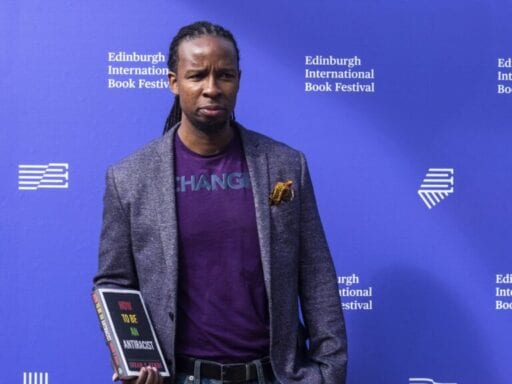In the wake of the anti-police brutality protests, sales of books on anti-racism are surging.
In the wake of the waves of police brutality at protests against the police killings of George Floyd, Breonna Taylor, and other black people, Americans are turning to books to try to understand the United States’ history of structural and institutional racism. Over the past month, sales of books about anti-racism have surged dramatically.
Every one of the 10 books on the New York Times’s combined e-book and print nonfiction best-seller list this week is about anti-racism. The Times’s fiction list is topped by Brit Bennett’s The Vanishing Half, a just-released novel by a black author about race and colorism in America.
Industry tracker NPD BookScan reports that political science civil rights titles saw a sales jump of 330 percent from the week of May 17 to the week of May 23, while books about discrimination had a sales jump of 245 percent in the same time. Books like Ibram X. Kendi’s How to Be an Antiracist and Robin DiAngelo’s White Fragility are sold out everywhere.
The sales boom comes after a slew of publications responded to the George Floyd protests by publishing anti-racist reading lists, many of which recommended How to Be an Anti-Racist and White Fragility. (I compiled one for Vox on police brutality that included both titles.) And for some critics, the rush to fight white supremacy by recommending books seemed to miss the point.
“Who is this for?” asked Lauren Michele Jackson at Vulture. “The syllabus, as these lists are sometimes called, seldom instructs or guides. It is no pedagogue. It is unclear whether each book supplies a portion of the holistic racial puzzle or are intended as revelatory islands in and of themselves.”
Calls to read more, as many critics have said, cannot not and should not replace active work to break down the systems that an anti-racist reading list can make apparent. They cannot be simple acts of virtue signalling.
But historically, enormous sales of political books have sometimes signified a shift in American culture. It was after Betty Friedan’s The Feminine Mystique became a giant best-seller in 1963 that second-wave feminism really took off. Friedan’s ideas weren’t necessarily new — other feminists existed and had been writing for awhile — but after The Feminine Mystique sold 3 million copies in three years, it became an unignorable phenomenon. And that is when change became possible.
Support Vox’s explanatory journalism
Every day at Vox, we aim to answer your most important questions and provide you, and our audience around the world, with information that has the power to save lives. Our mission has never been more vital than it is in this moment: to empower you through understanding. Vox’s work is reaching more people than ever, but our distinctive brand of explanatory journalism takes resources — particularly during a pandemic and an economic downturn. Your financial contribution will not constitute a donation, but it will enable our staff to continue to offer free articles, videos, and podcasts at the quality and volume that this moment requires. Please consider making a contribution to Vox today.
Author: Constance Grady
Read More



